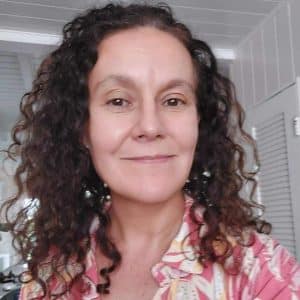We are very excited to share the latest news of the project we are beginning on San Andres Island, Colombia! Stony Coral Tissue Loss Disease (SCTLD) has been decimating coral populations throughout the Caribbean, and we are taking action to find ways to save and restore these populations.
Last year, PIMS and five organizations – three from Colombia (CORALINA, Ecomares NGO and Blue Indigo Foundation) and two from the USA (Gignoux-Wolfshon Lab-University of Massachusetts Lowell and The Ushijima Lab-University of North Carolina Wilmington) – were granted a CORDAP (Coral Research & Development Accelerator Platform) award to develop coral probiotics that can be used to stop SCTLD in infected coral colonies and to boost coral health, survival, and growth on microfragments and coral recruits.
This project, called “Giving Caribbean corals a future: SCTLD and the use of probiotics in coral restoration projects,” will be ongoing for the next three years, and all our fieldwork will be on the Caribbean Island of San Andres (Colombia). We aim to provide an alternative to the current SCTLD treatment, which is the application of antibiotics that are not only costly but can potentially have negative impacts on the reef environment. The probiotic treatments developed will be shared with collaborators working in other coral reef areas in the Caribbean.
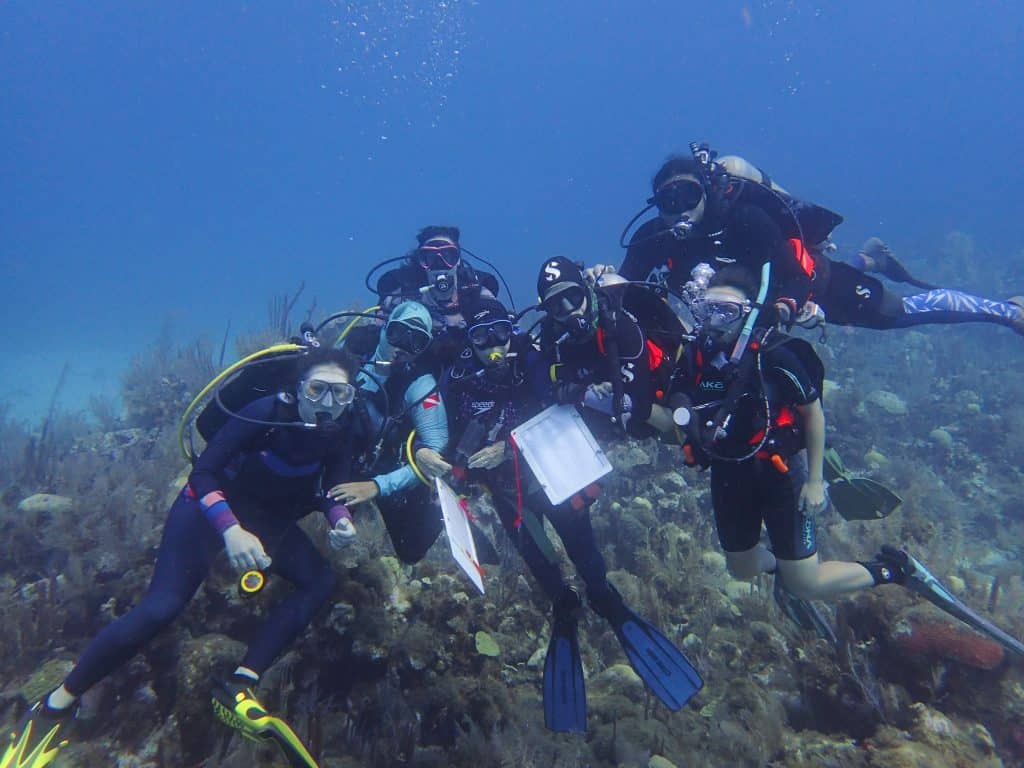
During the last two weeks, PIMS senior scientist and manager of our coral program, Dr. Valeria Pizarro, who is the principal investigator of this project, along with researchers and students from our CORDAP project partners, were collecting the first samples and photos to start this project. Venturing beneath the waves, we conducted dives at six sites, gathering coral microbiome and mucus samples while establishing our first permanent monitoring plots. Through meticulous photomosaics, we aim to monitor coral populations and assess the efficacy of both antibiotics and probiotics.
Dr. Sara Gignoux-Wolfshon and her team will be studying coral microbiomes, including classifying all the microbes associated with corals. Leveraging this knowledge, Dr. Blake Ushijima will spearhead the development of probiotics that will be tested in SCTLD-infected coral colonies (PIMS and CORALINA will lead this activity), as well as in restoration projects using coral microfragments (i.e., coral fragmented into 1 x 1 cm pieces, led by Blue Indigo Foundation) and coral recruits (the first benthic stage of sexually produced corals, also called “coral babies” by non-scientists, led by Ecomares NGO).
At the end of the week, CORALINA hosted a press conference to inform local media about the project and its importance for the island, the archipelago, and the Caribbean. With plans to visit San Andres Island imminently, we eagerly anticipate sharing further updates on our progress.
Together, we’re forging a path towards a brighter, more resilient future for Caribbean coral reefs—one probiotic at a time.
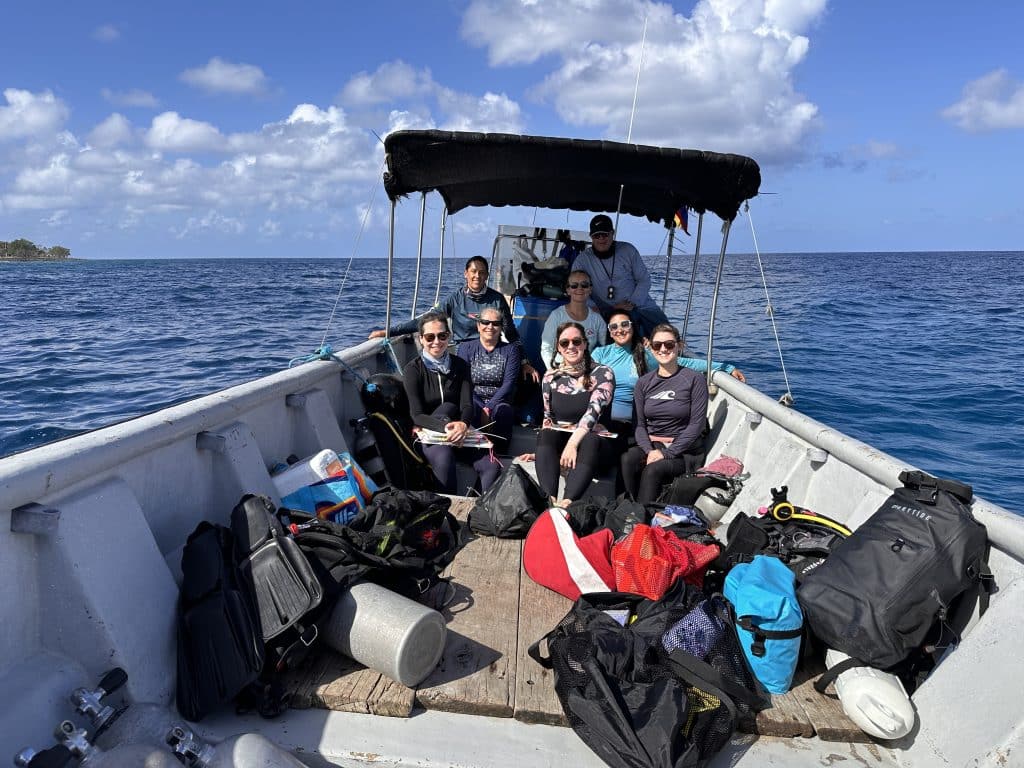
Dive deeper.
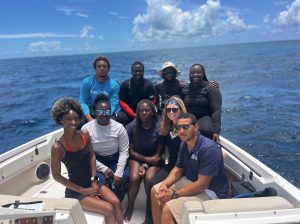
Become a PADI Dive Instructor in The Bahamas | Conservation-Focused IDC
Become a PADI Dive Instructor in The Bahamas | Conservation-Focused IDC | Perry Institute for Marine Science Education & Training Ready to take your diving skills to the next level
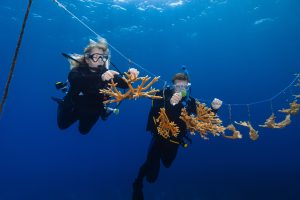
Stream2Sea Coral Care: The World’s First Reef-Positive Sunscreen
Stream2Sea Coral Care: The World’s First Reef-Positive Sunscreen | Perry Institute for Marine Science Conservation Partners Stream2Sea Coral Care: The World’s First Reef-Positive Sunscreen Discover why PIMS has partnered with

Build a Coral Reef for the Holidays | PIMS x Partanna
PIMS is partnering with Partanna to build a 100m² carbon-negative reef. Rick Fox is matching donations up to $25k. Help us build a sanctuary for the future.
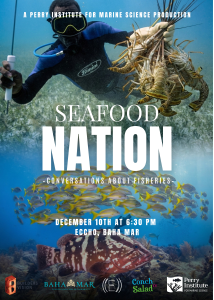
“Seafood Nation” Documentary Premiere Explores the Heart of Bahamian Culture and the Future of Fisheries
NASSAU, The Bahamas | December 5, 2025 – From the bustling stalls of Potter’s Cay to family kitchen tables across the archipelago, seafood is far more than just sustenance in
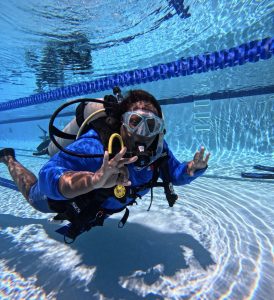
PIMS and Disney Conservation Fund Partner to Train 19 Government Divers
PIMS dive training in Nassau strengthened national coral restoration capacity across government agencies. Bahamas Dive Training Builds National Coral Restoration Capacity Last fall, between the months of September and October,
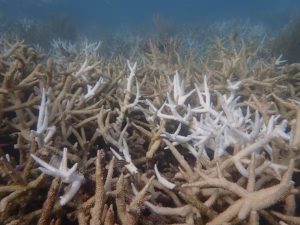
Florida’s Coral Reef Crossed a Line: What Functional Extinction Really Means for Elkhorn and Staghorn Corals
Reefs didn’t just bleach. They functionally vanished in one summer. A new Science study co-authored by researchers from the Perry Institute for Marine Science (PIMS) has found that Florida’s two


